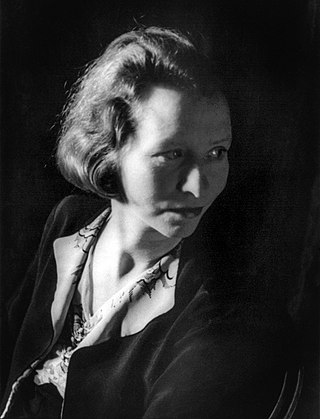
Edna St. Vincent Millay was an American lyrical poet and playwright. Millay was a renowned social figure and noted feminist in New York City during the Roaring Twenties and beyond. She wrote much of her prose and hackwork verse under the pseudonym Nancy Boyd.
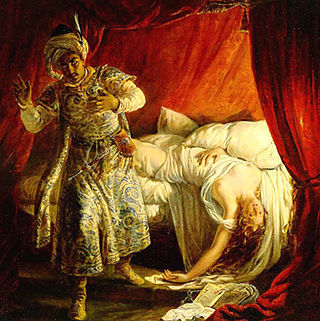
Otello is an opera in four acts by Giuseppe Verdi to an Italian libretto by Arrigo Boito, based on Shakespeare's play Othello. It was Verdi's penultimate opera, first performed at the Teatro alla Scala, Milan, on 5 February 1887.
Mefistofele is an opera in a prologue and five acts, later reduced to four acts and an epilogue, the only completed opera with music by the Italian composer-librettist Arrigo Boito. The opera was given its premiere on 5 March 1868 at La Scala, Milan, under the baton of the composer, despite his lack of experience and skill as a conductor.
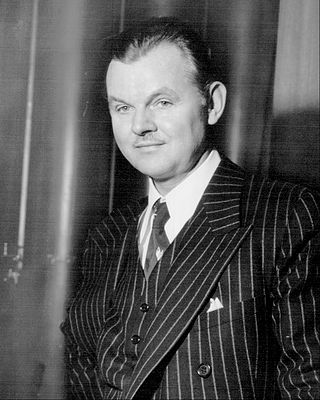
Lawrence Mervil Tibbett was an American opera singer and recording artist who also performed as a film actor and radio personality. A baritone, he sang leading roles with the Metropolitan Opera in New York City more than 600 times from 1923 to 1950. He performed diverse musical theatre roles, including Captain Hook in Peter Pan in a touring show.

La Cenerentola, ossia La bontà in trionfo is an operatic dramma giocoso in two acts by Gioachino Rossini. The libretto was written by Jacopo Ferretti, based on the libretti written by Charles-Guillaume Étienne for the opera Cendrillon with music by Nicolas Isouard and by Francesco Fiorini for Agatina, o la virtù premiata with music by Stefano Pavesi. All these operas are versions of the fairy tale Cendrillon by Charles Perrault. Rossini's opera was first performed in Rome's Teatro Valle on 25 January 1817.

Rodelinda, regina de' Longobardi is an opera seria in three acts composed for the first Royal Academy of Music by George Frideric Handel. The libretto is by Nicola Francesco Haym, based on an earlier libretto by Antonio Salvi. Rodelinda has long been regarded as one of Handel's greatest works.
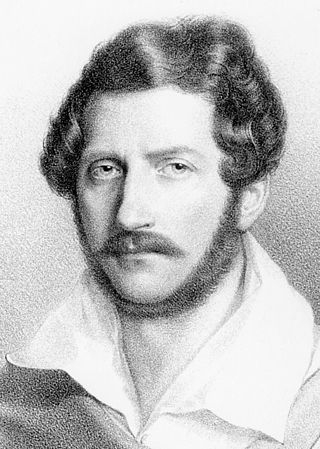
Maria Stuarda is a tragic opera, in two acts, by Gaetano Donizetti, to a libretto by Giuseppe Bardari, based on Andrea Maffei's translation of Friedrich Schiller's 1800 play Maria Stuart.
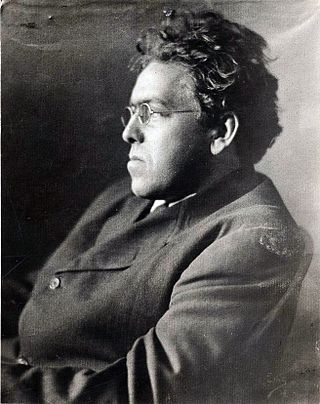
Newell Convers Wyeth, known as N. C. Wyeth, was an American painter and illustrator. He was the pupil of Howard Pyle and became one of America's most well-known illustrators. Wyeth created more than 3,000 paintings and illustrated 112 books — 25 of them for Scribner's, the Scribner Classics, which is the body of work for which he is best known. The first of these, Treasure Island, was one of his masterpieces and the proceeds paid for his studio. Wyeth was a realist painter at a time when the camera and photography began to compete with his craft. Sometimes seen as melodramatic, his illustrations were designed to be understood quickly. Wyeth, who was both a painter and an illustrator, understood the difference, and said in 1908, "Painting and illustration cannot be mixed—one cannot merge from one into the other."

Joseph Deems Taylor was an American music critic, composer, and promoter of classical music. Nat Benchley, co-editor of The Lost Algonquin Roundtable, referred to him as "the dean of American music."

Oberon, or The Elf-King's Oath is a 3-act romantic opera with spoken dialogue composed in 1825–26 by Carl Maria von Weber. The only English opera ever set by Weber, the libretto by James Robinson Planché was based on the German poem Oberon by Christoph Martin Wieland, which itself was based on the epic romance Huon de Bordeaux, a French medieval tale. It was premiered in London on 12 April 1826.

Ein Feldlager in Schlesien is a Singspiel in three acts by Giacomo Meyerbeer with a German-language libretto by Ludwig Rellstab after Eugène Scribe's Le camp de Silésie. It was first performed at the Hofoper, Berlin, on 7 December 1844; a version with a revised libretto by Charlotte Birch-Pfeiffer, titled Vielka, opened in Vienna on 18 February 1847. Much material from the opera was later reused for Meyerbeer's opéra comique L'étoile du nord (1854).

La donna del lago is an opera composed by Gioachino Rossini with a libretto by Andrea Leone Tottola based on the French translation of The Lady of the Lake, a narrative poem written in 1810 by Sir Walter Scott, whose work continued to popularize the image of the romantic Scottish Highlands. Scott's basic story has been noted as coming from "the hint of an incident stemming from the frequent custom of James V, the King of Scotland, of walking through the kingdom in disguise".

Minnie Egener (1881–1938) was an American operatic mezzo-soprano.

Alfred is a heroic opera in three acts by the Czech composer Antonín Dvořák. It was Dvořák's first opera and the only one he composed to a German text. The libretto, by Carl Theodor Körner, was set by Friedrich von Flotow, based on the story of the English king Alfred the Great. Composed in 1870, Alfred was not performed during Dvořák's lifetime. The opera premiered at the City Theatre, Olomouc on 10 December 1938.
A bibliography of Edna St. Vincent Millay.

The Emperor Jones is an opera in two acts with a prologue and interlude composed by Louis Gruenberg to an English-language libretto adapted by the composer from Eugene O'Neill's 1920 play, The Emperor Jones. It premiered on January 7, 1933, at the Metropolitan Opera in New York City with Lawrence Tibbett in the title role. Set on an unnamed island in the West Indies, the opera tells the story of African American Brutus Jones, a former Pullman porter and ex-convict who escaped to the island, set himself up as its tyrannical "Emperor", and became rich by exploiting the natives. The natives start a revolt against him, and as he tries to escape through the jungle, he is haunted by visions of his past life and the man he had murdered. As the natives close in, he commits suicide using the silver bullet which he had worn around his neck as a good-luck charm. With a score that incorporates elements of jazz and negro spirituals, The Emperor Jones was the eleventh American opera to premiere at the Met, and has continued to be performed into the 21st century, albeit rarely.
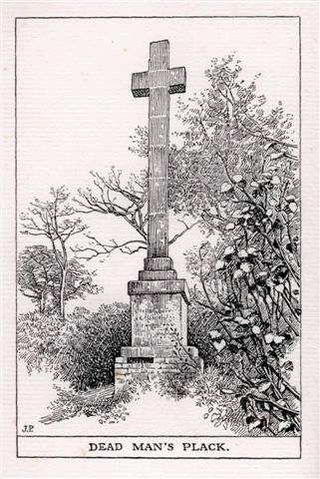
Dead Man's Plack is a Grade-II listed 19th-century monument to Æthelwald, Ealdorman of East Anglia, who, according to legend, was killed in 963 near the site where it stands by his rival in love, King Edgar I. The name is more probably derived from a corruption of "Dudman's Platt", from Dudman — who is recorded as a resident in 1735 — and platt, meaning a plot of land. The monument was erected in 1825 at Harewood Forest, between the villages of Picket Twenty and Longparish, Hampshire, by Lt. Col. William Iremonger.

Louis D'Angelo was an American bass-baritone of Italian birth who was particularly known for his performances at the Metropolitan Opera during the first half of the 20th century. He created roles in the world premieres of seven operas at the Met, including Marco in Puccini's Gianni Schicchi in 1917.
A Thousand Splendid Suns is an opera with music by American composer Sheila Silver and an English-language libretto by Stephen Kitsakos, based on the popular novel by Khaled Hosseini. It was commissioned by Seattle Opera, where it will premiere in February 2023. The opera tells the story of two Afghan women, from different generations and walks of life, who are forced into marriage with the same man. Enemies at first, they grow to love each other like mother and daughter, and discover that the human spirit can survive and transcend the most challenging of circumstances. The opera is in two acts and is scored for 11 singers, 1 singing child role, full orchestra and has a duration of 2 hours 30 minutes.




















